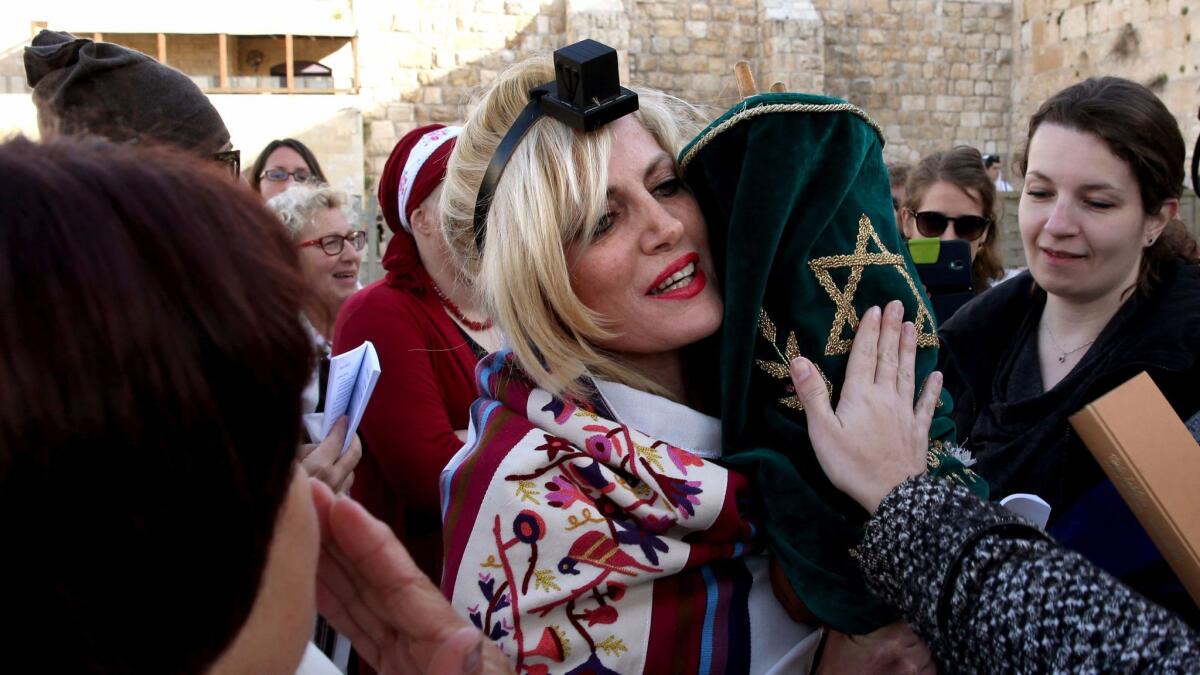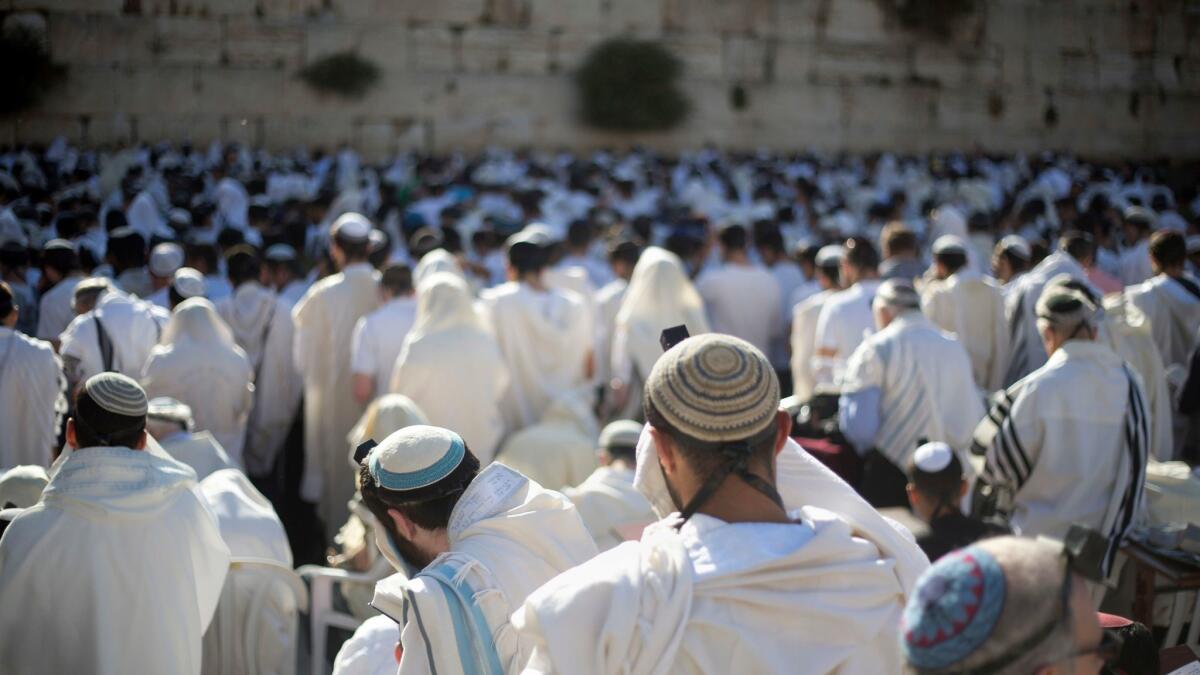Israel abandons deal on prayer at Western Wall, angering liberal Jews

- Share via
Reporting from Tel Aviv — Israel’s government on Sunday scrapped a compromise to allow pluralist prayer at the Western Wall holy site in Jerusalem, bowing to pressure from ultra-religious parties in Prime Minister Benjamin Netanyahu’s coalition and angering liberal Jewish denominations with large followings in North America.
The agreement, approved by Israel’s Cabinet in January 2016, would have established a new area for worship at the ancient Old City shrine — part of the retaining wall of the ancient Temple and a leading Jewish pilgrimage site.
The deal was backed by Judaism’s Reform and Conservative movements, as well as the feminist Jewish group Women of the Wall, which has become a cause celebre in recent years among liberal Jews for practicing egalitarian prayer at the holy site in defiance of Israel’s religious and police authorities.
But the compromise was never put into effect, frozen by opposition from Israel’s ultra-Orthodox religious establishment for deviating from the Orthodox rituals that have prevailed at the Western Wall plaza for years. Following the decision on Sunday, Israel’s government will seek to reach a new compromise on prayer at the Western Wall.
Moshe Gafni, the leader of Israel’s ultra-religious United Torah Judaism party, hailed the decision. “We are happy about this, and thank the holy one, blessed is he, on this great success,’’ he told reporters after the decision.

Critics of the about-face by Netanyahu warned that abandoning the compromise risks alienating large swaths of North American Jewry that Israel has long relied upon for political and financial backing.
“This is a shameful move by the Israeli government,’’ said Rabbi Gilad Kariv, the director of the Israel Movement for Reform and Progressive Judaism, in an interview. “If the state of Israel decides that Reform and Conservative Jews are second-class Jews, those Jews will know how to react.”
Natan Sharansky, a former government minister and Soviet refusenik who helped broker the original compromise as the chairman of the Jewish Agency for Israel, called the decision a “deep disappointment.’’
The original agreement would have established “a dignified space for egalitarian prayer at the Western Wall,’’ Sharansky said in a statement. “Today’s decision signifies a retreat from that agreement and will make our work to bring Israel and the Jewish world closer together increasingly more difficult.”
Anat Hoffman, chairwoman of Women of the Wall, accused Netanyahu of “folding” and going back on a “historic” agreement with liberal Jewish denominations. Women of the Wall members hold monthly prayer services at the Western Wall plaza in which participants lead prayer and read from Torah scrolls, despite an official ban on such practices by women.
“This is a bad day for women in Israel,” Hoffman wrote on Facebook. “The Women of the Wall will continue to worship at the women’s section of the Western Wall with the Torah scroll, prayer shawls and phylacteries until equality for women arrives at the Wall as well.”
A spokesman from the prime minister’s office declined to comment.
Netanyahu relies on the support of two ultra-Orthodox parties to shore up his majority in the parliament, the Knesset. After watching front-runner candidates underperform in recent votes elsewhere — specifically, Theresa May in Britain — he is loath to imperil his coalition’s stability, said Jonathan Rynhold, a political science professor at Bar-Ilan University.
“It’s all about the coalition,’’ he said. “He is worried that the ultra-Orthodox will cause him to lose a majority and lose a confidence vote. And he looks at the elections around the world and says, ‘I don’t want to take the risk.’”
ALSO
Iran’s anti-Israel rallies, a tradition during Ramadan, this year include ballistic missiles
Will Qatar agree to Arab countries’ new list of demands? Unlikely
A Palestinian village was annexed by Israel after the 1967 war. Now it’s behind a wall and orphaned
Mitnick is a special correspondent.
More to Read
Sign up for Essential California
The most important California stories and recommendations in your inbox every morning.
You may occasionally receive promotional content from the Los Angeles Times.










